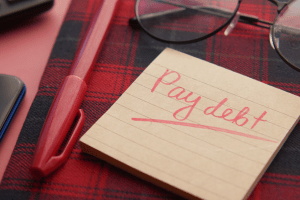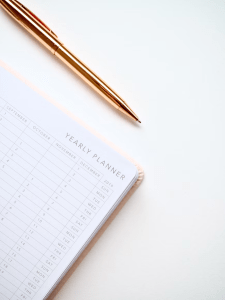
There’s a number of reasons that people can get into financial trouble, some of which are easily avoidable and others that are not as easy to predict. Fortunately, with proper planning, you can be better prepared to weather out the stormy days and you can avoid falling into common financial pitfalls.
Here are some tips you can use to get started:
 1) Set aside an emergency fund: There’s a number of reasons that this is a good idea. For instance, you might suddenly find yourself becoming unemployed, as many people did during the onset of COVID19. Perhaps you might get injured, or become really ill. An unexpected expense might come up, such as your car ceasing to function. Whatever the reason, many financial experts agree that you should set aside at least 3-6 months’ worth of expenses.
1) Set aside an emergency fund: There’s a number of reasons that this is a good idea. For instance, you might suddenly find yourself becoming unemployed, as many people did during the onset of COVID19. Perhaps you might get injured, or become really ill. An unexpected expense might come up, such as your car ceasing to function. Whatever the reason, many financial experts agree that you should set aside at least 3-6 months’ worth of expenses.
2) Avoid reliance on credit: Responsible usage of credit cards is a great way to build up your credit, and increase your chances of securing proper loans for major purchases. However, it is incredibly easy to overspend, or to get into debt from not paying back your credit lenders on time. Credit cards have notoriously high interest rates attached to them, so if you are in debt, make sure you prioritize on paying off high interest accounts first. Want to learn more about credit? Check out this blog!
 3) Increase your financial literacy: Unfortunately, this is a topic that many schools don’t teach us, which can leave us especially susceptible towards getting into financial trouble at some point in our lives. I remember when I got my first credit card (at the age of 18), I was scared to use it because I incorrectly believed I would get charged interest for every transaction I made. In reality, you only pay interest if you don’t pay on time. Want to increase your financial literacy? Check out our many finance programs that you can sign up for, free of charge!
3) Increase your financial literacy: Unfortunately, this is a topic that many schools don’t teach us, which can leave us especially susceptible towards getting into financial trouble at some point in our lives. I remember when I got my first credit card (at the age of 18), I was scared to use it because I incorrectly believed I would get charged interest for every transaction I made. In reality, you only pay interest if you don’t pay on time. Want to increase your financial literacy? Check out our many finance programs that you can sign up for, free of charge!
4) Decreasing your day-to-day costs: There’s a number of easy ways to decrease costs associated with your day-to-day living, such as cranking the thermostat down when you’re not home, getting rid of subscription services you barely use (such as cable), and freezing foods so that they have a longer shelf life. Every little thing you do can add up to substantial savings, and any money you save this way can go towards your emergency fund, or towards future retirement expenditures.
5) Ensure you and your partner are on the same page: Money is a major stressor for many relationships, so make sure you have these important conversations early on. If you love to save money, but your partner spends every cent they earn, this will likely lead to financial difficulties down the road. Work together towards creating a budget, check in frequently with one another, and make adjustments as needed.
If you’re looking for even more tips, check out these great reads below:



Add a comment to: 5 Tips to Help you Avoid Getting Into Financial Trouble!